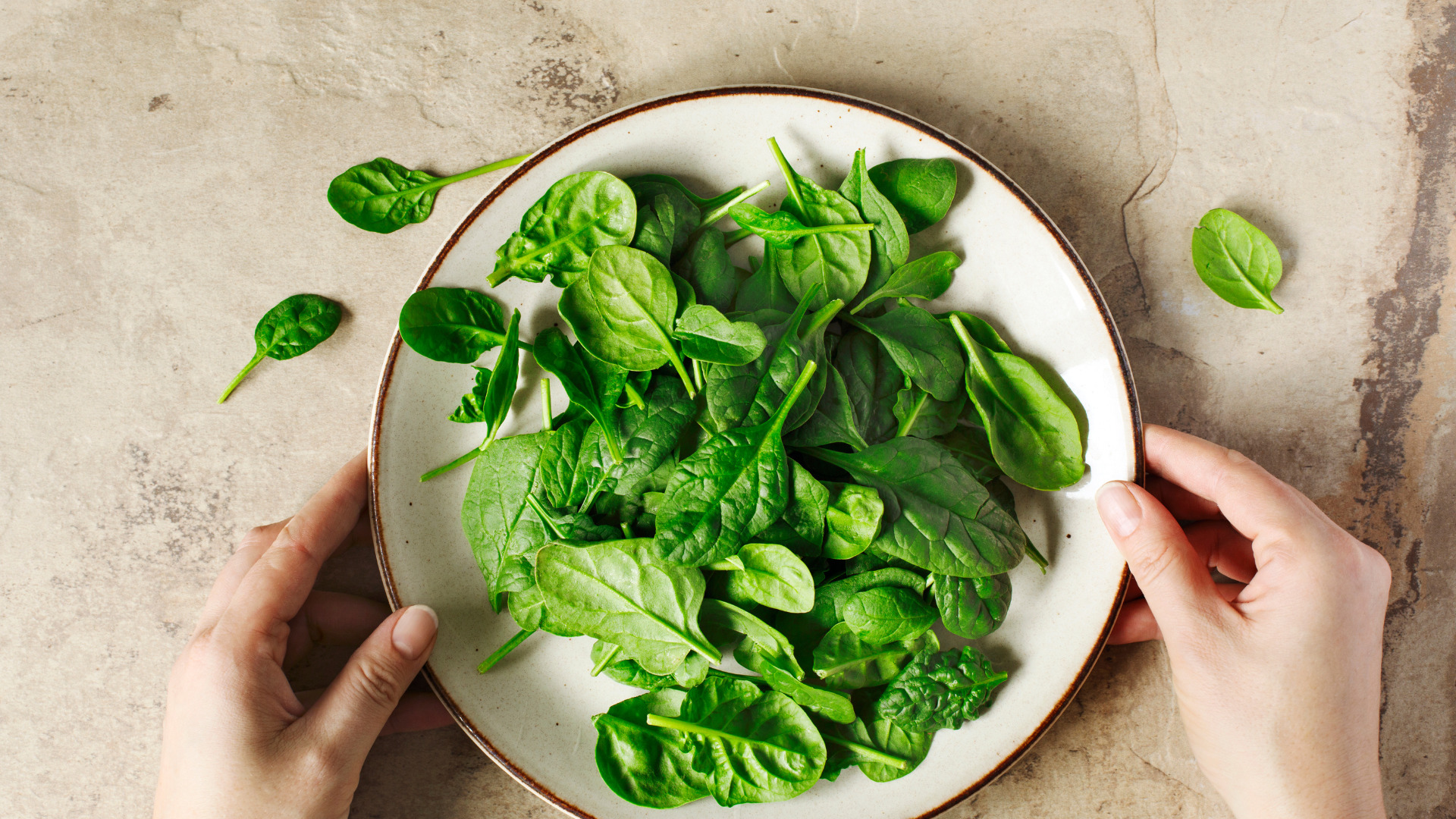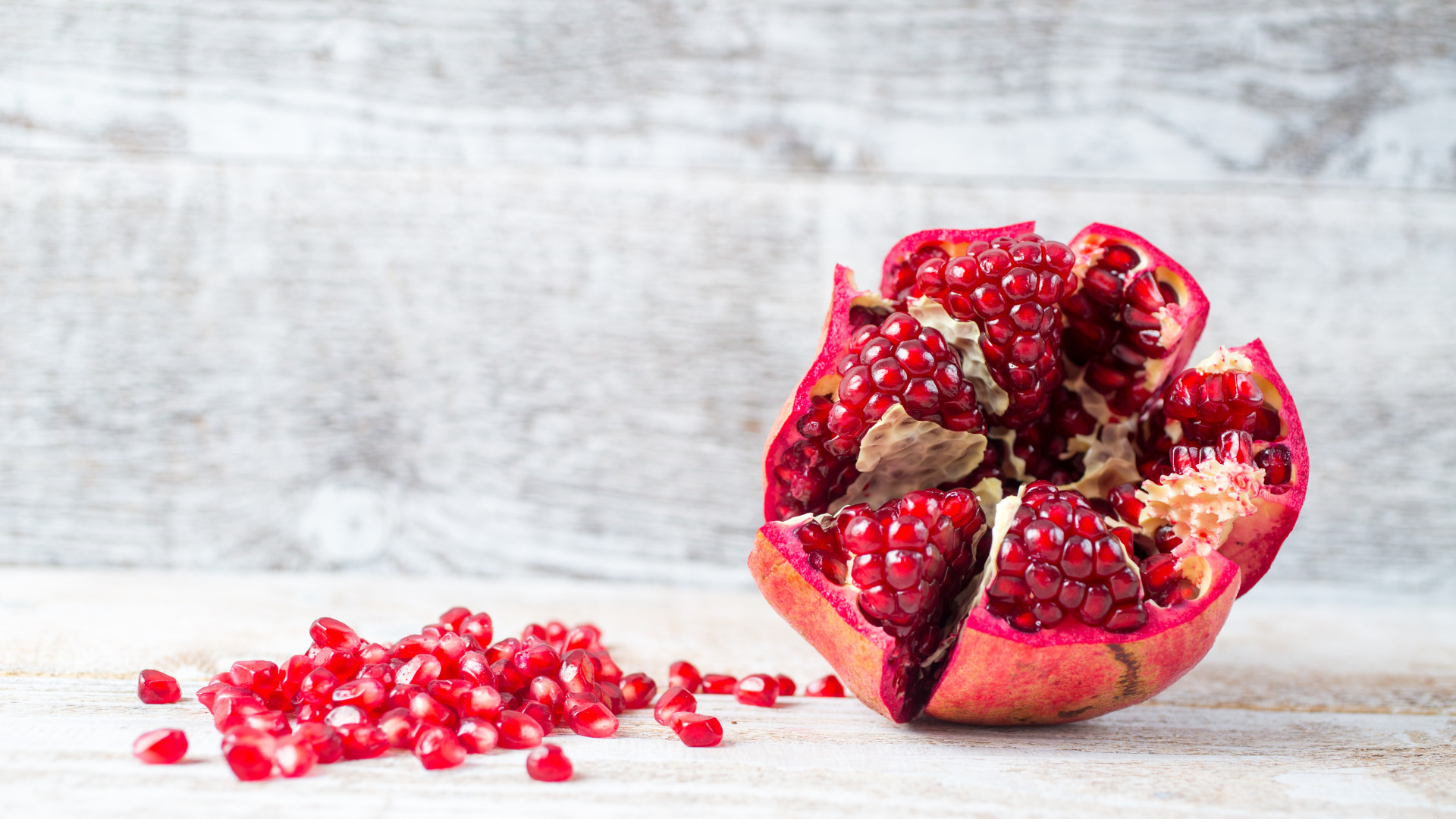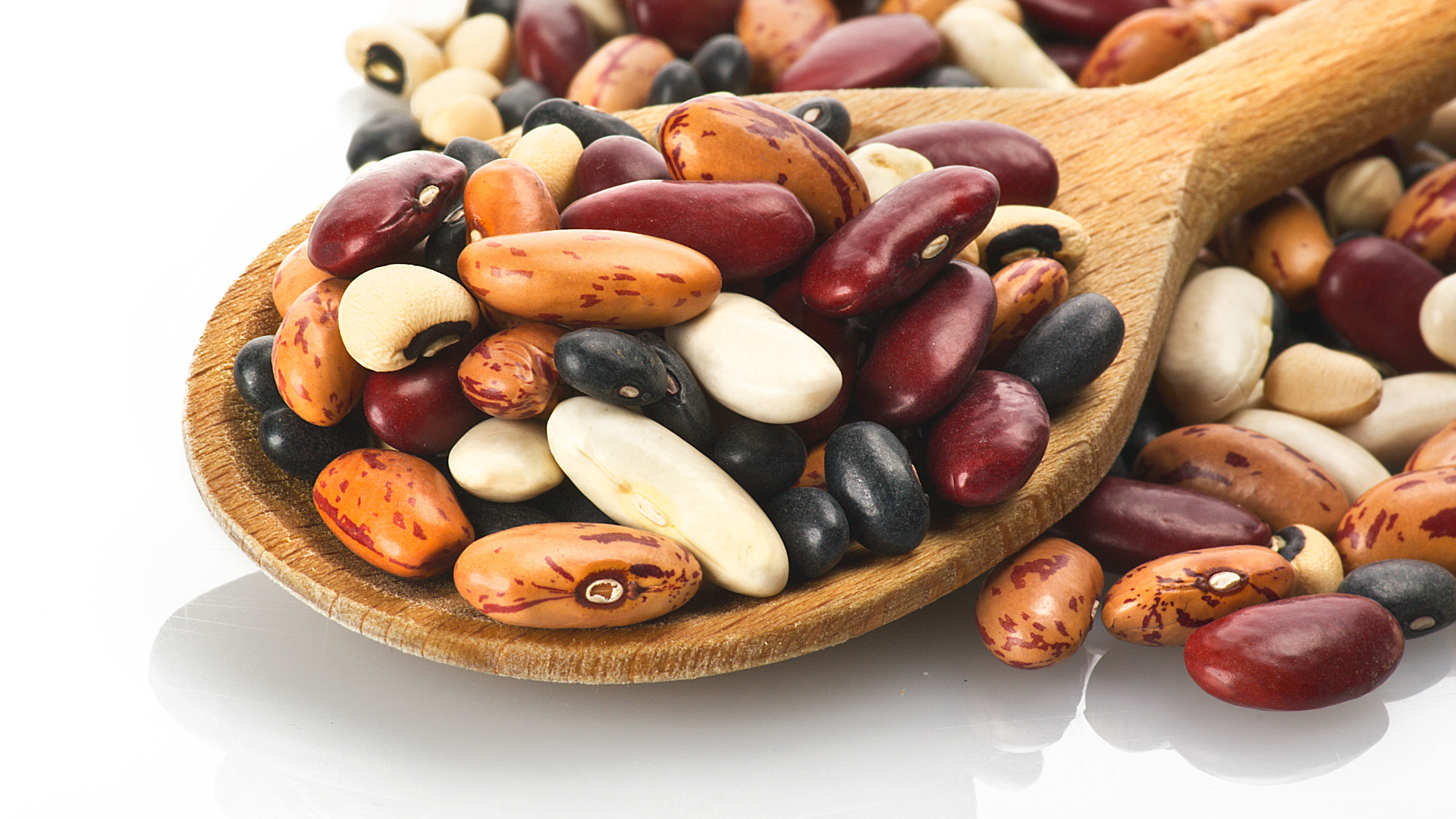Foods That Boost Your Mood: 9 Powerful Choices!

Picture this: you wake up feeling a little down, lacking the energy and motivation to tackle the day ahead. But what if I told you that a simple dietary change could turn your mood around? The connection between food and mood is stronger than you might think. By incorporating certain foods into your diet, you can positively impact your emotional well-being and elevate your overall mindset.
Science has shown that specific foods have the power to boost serotonin levels in our brains, which is often referred to as the “happy hormone.” For example, yogurt contains probiotics that support gut health and aid in serotonin production. And let’s not forget about salmon, rich in omega-3 fatty acids that promote brain health and enhance mood. Even oysters, high in zinc, play a role in regulating neurotransmitters associated with mood regulation.
So buckle up and get ready to nourish your body for a happier mindset with these powerful food choices.
Expert-Backed Recommendations for Mood-Boosting Foods

In today’s fast-paced world, it’s not uncommon to feel a little down or stressed from time to time. But did you know that what you eat can have a significant impact on your mood? That’s right! Certain foods are known to boost your spirits and enhance your overall well-being. So, let’s dive in and uncover some expert-backed recommendations for mood-boosting foods.
Uncover expert-approved foods that can enhance your mood.
Nutritionists and health specialists have identified several key foods that can make a positive difference. These foods are not only delicious but also packed with nutrients that support a positive mindset. So, if you’re feeling low, consider adding the following items to your grocery list:
Dark chocolate: Indulging in a small piece of dark chocolate can release endorphins, which are known as “feel-good” hormones.
Berries: Loaded with antioxidants and vitamins, berries such as blueberries and strawberries have been linked to improved cognitive function and reduced symptoms of depression.
Leafy greens: Spinach, kale, and other leafy greens contain folate, which helps produce serotonin—a neurotransmitter associated with happiness.
Fermented foods: Foods like yogurt, sauerkraut, and kimchi are rich in probiotics that promote gut health. Emerging research suggests a strong connection between gut health and mental well-being.
Learn from professionals about the best foods to uplift your spirits.
Nutritionists play a crucial role in guiding us towards healthier food choices. Their expertise helps us understand how specific nutrients impact our mood. Here are some top recommendations from these professionals:
Omega-3 fatty acids: Found in fatty fish like albacore tuna and salmon, omega-3s have been shown to reduce symptoms of depression. Incorporating these fish into your diet can provide a much-needed mood boost.
Whole grains: Foods like brown rice, quinoa, and whole wheat bread are excellent sources of complex carbohydrates. These carbs help regulate serotonin levels in the brain, promoting feelings of calmness and happiness.
Nuts: Almonds, walnuts, and cashews are not only delicious but also rich in healthy fats and protein. They contain magnesium—a mineral that plays a vital role in regulating mood.
Discover evidence-based recommendations for boosting your mood through diet.
Numerous studies have explored the relationship between diet and mental well-being. Let’s take a closer look at some research-backed findings:
The Mediterranean diet: Researchers have found that adhering to a Mediterranean-style eating pattern—rich in fruits, vegetables, whole grains, lean proteins, and healthy fats—can reduce the risk of depression and improve overall mental health.
Vitamin D: Low levels of vitamin D have been linked to an increased risk of depression. While sunlight is the best source of this vitamin, you can also find it in fatty fish (like salmon), egg yolks, and fortified dairy products.
B vitamins: B vitamins play a crucial role in brain function and mental health. Foods such as eggs, legumes, leafy greens, and poultry are good sources of these essential nutrients.
Get insights into specific nutrients that support a positive mindset.
In addition to specific foods mentioned earlier, certain nutrients have been associated with improved mood:
Serotonin: This neurotransmitter is often referred to as the “happy hormone.” It helps regulate mood and promote feelings of well-being.
The Power of Tea: Green and Black Tea for a Better Mood

Tea is not just a beverage; it’s a mood-enhancing elixir that can help brighten your day. Whether you’re feeling down or simply need a pick-me-up, harnessing the power of tea can be a natural way to improve your mood.
Green Tea: A Calming Cup of Serenity
Green tea has long been revered for its numerous health benefits, but did you know it can also have a positive impact on your mood? This refreshing brew contains an amino acid called L-theanine, which has been shown to promote relaxation and reduce anxiety. By increasing alpha brain waves, L-theanine induces a sense of calmness without causing drowsiness.
Sipping on a cup of green tea can be particularly beneficial during stressful situations or when you’re feeling overwhelmed. It helps to take the edge off and allows you to regain focus and composure. The moderate caffeine content in green tea provides an energy boost without the jitters commonly associated with coffee.
Black Tea: A Soothing Sip for Emotional Well-being
If you prefer something bolder in flavor, black tea might be just what you need to lift your spirits. Known for its rich taste and robust aroma, black tea is packed with compounds that have been linked to improved mood and mental clarity.
One such compound is theaflavin, which has been found to increase dopamine levels in the brain. Dopamine is often referred to as the “feel-good” neurotransmitter because it plays a crucial role in regulating emotions and promoting feelings of pleasure and happiness. By boosting dopamine production, black tea can help elevate your mood naturally.
Moreover, black tea contains flavonoids that possess antioxidant properties. These antioxidants help combat oxidative stress in the body, which has been associated with mood disorders such as anxiety and depression. By reducing oxidative stress, black tea can contribute to a more balanced emotional state.
The Unique Combination: Green and Black Tea Blend
For an even greater mood-boosting effect, consider blending green and black tea together. This combination allows you to enjoy the benefits of both teas simultaneously, creating a harmonious balance that enhances your overall well-being.
By combining the calming properties of green tea with the mood-lifting effects of black tea, you can experience a sense of tranquility coupled with increased mental clarity. This blend is particularly beneficial for those seeking a natural way to manage stress or improve focus during study or work sessions.
This unique combination provides a moderate caffeine boost while still maintaining a soothing effect on the nervous system. It’s an excellent alternative for those who find coffee too stimulating or disruptive to their sleep patterns.
Incorporating green and black tea into your daily routine is simple. Start by brewing a cup of each separately or experimenting with different ratios until you find the perfect blend that suits your taste preferences. You can enjoy them hot or iced, depending on your preference and the weather outside.
Remember,Quality matters. Opt for loose-leaf teas or high-quality tea bags to ensure you’re getting the full benefits of these remarkable beverages.
So why not sip on some green or black tea today? Take a moment to indulge in its comforting warmth and let its natural compounds work their magic on your mood and well-being.
Chocolate: A Delicious Source of Mood-Boosting Compounds

Chocolate lovers, rejoice! Indulging in this sweet treat can actually boost your mood and make you feel happier. But it’s not just about satisfying your cravings; chocolate contains compounds that have been linked to improved happiness levels. So, if you’re looking for a guilt-free way to enhance your emotional well-being, look no further than the delicious world of chocolate.
Dark Chocolate: The Ultimate Mood Enhancer
Dark is the way to go if you want maximum mood-boosting benefits. Unlike milk chocolate or white chocolate, which are loaded with sugar and often lack substantial amounts of cocoa solids, dark chocolate is a great source of those beneficial compounds.
One such compound found in dark chocolate is caffeine. Yes, that same ingredient that gives you a little energy kick also plays a role in boosting your mood. Caffeine stimulates the release of dopamine, a neurotransmitter associated with pleasure and reward. So when you bite into a piece of dark chocolate, you’re not only treating yourself to its rich flavor but also giving yourself a natural mood lift.
Dark chocolate is also an excellent source of other chemicals that can positively affect your brain chemistry. It contains tryptophan, an amino acid that helps produce serotonin—a neurotransmitter known as the “feel-good” chemical. By increasing serotonin levels in your brain, dark chocolate can help regulate your mood and promote feelings of happiness and relaxation.
Carbohydrates and Blood Sugar Regulation
Another reason why dark chocolate can boost your mood is its carbohydrate content. Carbohydrates play a crucial role in regulating blood sugar levels, which can have a significant impact on how we feel emotionally. When we consume carbohydrates, our bodies break them down into glucose—the primary source of energy for our brains.
Eating carbohydrates triggers the release of insulin—a hormone responsible for transporting glucose from our bloodstream into our cells. This process helps stabilize our blood sugar levels and prevents drastic fluctuations that can lead to mood swings and irritability.
Dark chocolate, with its moderate carbohydrate content, provides a steady release of glucose into the bloodstream, helping to maintain stable blood sugar levels. This can contribute to a more balanced mood and prevent those dreaded crashes that leave us feeling tired and grumpy.
Magnesium: The Calming Mineral
In addition to its caffeine and carbohydrate content, dark chocolate is also an excellent source of magnesium—a mineral that plays a crucial role in promoting relaxation and reducing stress. Magnesium helps regulate neurotransmitters in the brain, such as serotonin, which are essential for maintaining a positive mood.
Studies have shown that low levels of magnesium are associated with higher rates of depression and anxiety. By incorporating dark chocolate into your diet, you can increase your magnesium intake naturally and potentially improve your overall emotional well-being.
So next time you’re feeling down or need a little pick-me-up, reach for a piece of dark chocolate. Not only will it satisfy your sweet tooth, but it may also give you that much-needed mood boost you’ve been craving.
Leafy Greens: Spinach and Kale for a Happier You

Leafy greens are not just for rabbits! These vibrant and nutrient-packed vegetables can actually supercharge your happiness and boost your mood. Two popular leafy greens that have gained recognition for their mood-enhancing properties are spinach and kale. Let’s dive into why these greens should be on your plate if you want to feel happier.
Nutrient Powerhouses
Spinach and kale are nutritional powerhouses that offer a wide range of health benefits. Both greens are packed with essential vitamins, minerals, and antioxidants that play a crucial role in maintaining overall well-being. One key nutrient found in abundance in leafy greens is folate, which has been linked to improved mental health and reduced risk of depression.
Mood-Boosting Benefits
The high levels of folate in spinach and kale contribute to their positive impact on mood. Folate plays a vital role in the production of serotonin, a neurotransmitter that regulates mood, sleep, appetite, and other important functions. By increasing serotonin levels in the brain, consuming leafy greens can help improve your emotional state and promote feelings of happiness.
In addition to folate, spinach and kale also contain other mood-boosting nutrients such as vitamin B6. This vitamin is involved in the synthesis of neurotransmitters like serotonin and dopamine, which are known as “feel-good” chemicals. Including these greens in your diet can help support optimal brain function and promote a positive outlook.
Gut Health Connection
Did you know that there is a strong connection between our gut health and our mood? The gut microbiome, which consists of trillions of bacteria living in our digestive system, plays a crucial role in regulating various aspects of our physical and mental health. Leafy greens like spinach and kale contribute to a healthy gut by providing prebiotic fiber that feeds the beneficial bacteria in our intestines.
A healthy gut microbiome is associated with improved mood and reduced risk of mental health disorders. By nourishing the gut with leafy greens, you are supporting the growth of healthy bacteria that can positively influence your emotional well-being.
Versatility and Creative Ways to Include Leafy Greens
One of the great things about spinach and kale is their versatility in culinary applications. These greens can be enjoyed raw in salads, sautéed as a side dish, blended into smoothies, or even baked into crispy chips. Here are some creative ways to incorporate these mood-boosting greens into your meals:
Add a handful of spinach or kale to your morning smoothie for an extra nutrient boost.
Sauté spinach with garlic and olive oil as a delicious side dish.
Use kale leaves as a base for a nutrient-packed salad topped with your favorite protein.
Blend spinach into pasta sauce or soups for added nutrients without altering the taste.
By getting creative with how you include leafy greens in your meals, you can reap their mood-boosting benefits while enjoying delicious and nutritious dishes.
Pomegranates: Antioxidant-Rich Fruit for a Brighter Mood

Pomegranates are not just a delicious and refreshing fruit; they also have the power to boost your mood and contribute to your overall emotional well-being. This vibrant fruit is packed with unique compounds that can have a positive impact on your mental health. Let’s dive in and uncover the secrets behind pomegranates’ mood-boosting properties.
Uncover the Unique Compounds
One of the key compounds found in pomegranates is antioxidants. These powerful substances play a crucial role in combating oxidative stress, which has been linked to an increased risk of mood disorders such as depression and anxiety. By reducing oxidative stress, pomegranates help protect your brain cells from damage and promote better mental health.
Another compound found in pomegranates is melatonin, a hormone that regulates sleep-wake cycles. Adequate sleep is essential for maintaining a positive mood, and melatonin helps ensure you get the restful sleep you need. By incorporating pomegranates into your diet, you may experience improved sleep quality, leading to enhanced emotional well-being.
Potential Benefits for Your Emotional Well-Being
Consuming pomegranates regularly can offer several potential benefits for your emotional well-being:
Mood Enhancement: The antioxidants present in pomegranates help reduce inflammation in the brain, which can positively impact your mood and overall mental state.
Stress Reduction: Packed with vitamins C and E, pomegranates can help lower cortisol levels (the stress hormone) in the body, promoting relaxation and reducing anxiety.
Increased Serotonin Levels: Serotonin is often referred to as the “feel-good” hormone because it contributes to feelings of happiness and well-being. Pomegranate consumption may increase serotonin levels in the brain, leading to improved moods.
Improved Cognitive Function: The antioxidants in pomegranates have been shown to enhance cognitive function, including memory and concentration. By supporting brain health, pomegranates can contribute to better emotional well-being.
Enjoying Pomegranates
Incorporating pomegranates into your diet is not only beneficial for your mood but also a delightful culinary experience. Here are some ways you can enjoy this antioxidant-rich fruit:
Fresh: Simply cut open a ripe pomegranate and enjoy the juicy arils (seeds) as a snack or add them to salads for an extra burst of flavor.
Juice: Sip on freshly squeezed pomegranate juice for a refreshing and nutritious beverage.
Smoothies: Blend pomegranate arils with other fruits like berries or bananas for a delicious and mood-boosting smoothie.
Sauces and Dressings: Create tangy sauces or dressings by incorporating pomegranate juice into your recipes.
Desserts: Sprinkle pomegranate arils over yogurt, ice cream, or cakes to add a pop of color and sweetness.
Remember that moderation is key when consuming any food, including pomegranates. While they offer numerous benefits, it’s important to maintain a balanced diet that includes a variety of fruits and vegetables.
Beans and Lentils: Plant-Based Protein for a Positive Mindset

Beans and lentils, also known as legumes, are not only delicious but can also have a positive impact on your mood. These plant foods are packed with essential nutrients that support brain health and promote a positive mindset. Whether you’re a vegetarian or simply looking to reduce your meat consumption, beans and lentils are an excellent choice to boost your mood.
Nutrient Content for Mental Well-being
Beans and lentils are rich sources of protein, fiber, and various vitamins and minerals that contribute to overall brain function. Protein is made up of amino acids, which play a crucial role in the production of neurotransmitters, the chemical messengers in our brains. These neurotransmitters help regulate our mood, emotions, and cognitive function.
Amino Acids: The Mood Boosters
Amino acids found in beans and lentils can have a direct impact on our mental well-being. For example, tryptophan is an essential amino acid that helps produce serotonin, often referred to as the “feel-good” hormone. Serotonin plays a key role in regulating mood and promoting feelings of happiness and relaxation.
Moreover, beans and lentils contain tyrosine, which is involved in the production of dopamine. Dopamine is associated with pleasure, motivation, focus, and attention span. By consuming these legumes regularly, you can ensure an adequate intake of these amino acids for optimal brain function.
Vegetarian-Friendly Option
One significant advantage of incorporating beans and lentils into your diet is their suitability for vegetarians or those aiming to reduce their meat consumption. As plant-based sources of protein, they provide an alternative to animal products without compromising nutritional needs.
By choosing beans and lentils as part of your meals or snacks instead of meat-based options like beef or chicken, you can still meet your protein requirements while reaping the additional benefits they offer for brain health and mood enhancement.
Healthy Diet Tips for Incorporating Mood-Boosting Foods

Incorporating mood-boosting foods into your daily diet doesn’t have to be a daunting task. With a few simple strategies and mindful choices, you can enhance your mood and overall well-being. Let’s explore some practical tips to help you prioritize healthy foods that can uplift your spirits.
Practical Tips for Incorporating Mood-Boosting Foods
- Plan Your Meals: Meal planning plays a crucial role in ensuring that you incorporate mood-enhancing ingredients into your diet consistently. Take some time each week to plan out your meals and snacks, keeping in mind the inclusion of nutritious foods known to boost mood, such as fruits, vegetables, whole grains, lean proteins, and healthy fats.
Prioritize Colorful Fruits and Vegetables: Brightly colored fruits and vegetables are not only visually appealing but also packed with essential vitamins and minerals that support emotional well-being. Include a variety of colorful produce like berries, leafy greens, bell peppers, citrus fruits, and sweet potatoes in your meals to reap their mood-boosting benefits.
Choose Whole Grains: Opt for whole grains over refined carbohydrates like white bread or sugary cereals. Whole grains such as quinoa, brown rice, oats, and whole wheat bread provide sustained energy release throughout the day while promoting stable blood sugar levels. This stability helps prevent sharp spikes and crashes in energy levels that can negatively impact mood.
Include Lean Proteins: Lean proteins are not only essential for muscle growth but also play a vital role in maintaining balanced moods. Incorporate lean sources of protein like skinless chicken breast, turkey, fish, beans, lentils (as discussed earlier), tofu or tempeh into your meals to support serotonin production—a neurotransmitter associated with feelings of happiness.
Don’t Forget Healthy Fats: Healthy fats are crucial for brain health and can have a positive impact on your mood. Include sources of healthy fats like avocados, nuts, seeds, olive oil, and fatty fish (such as salmon or mackerel) in your diet. These foods are rich in omega-3 fatty acids, which have been linked to reduced depressive symptoms.
The Role of Portion Control in Maintaining a Balanced Diet
Maintaining a balanced diet is not just about the types of foods you eat but also about portion control. Even if you’re consuming mood-boosting foods, overeating can lead to discomfort and negatively affect your emotional well-being. Here are some tips to help you practice portion control:
Listen to Your Body: Pay attention to your body’s hunger and fullness cues. Eat slowly and mindfully, savoring each bite. This will allow you to better gauge when you’re satisfied rather than continuing to eat out of habit or boredom.
Use Smaller Plates: Trick your brain into thinking you’re eating more by using smaller plates and bowls. This visual illusion can help with portion control as it gives the perception that you’re consuming a larger quantity of food.
Be Mindful of Snacking: Snacking can easily lead to mindless eating if we’re not paying attention. Instead of mindlessly munching on snacks straight from the bag or container, portion out single servings into small bowls or containers beforehand.
Practice Moderation: It’s okay to indulge in treats occasionally; however, practicing moderation is key.
Enhancing Your Mood with the Right Foods
Congratulations! You’re now armed with expert-backed recommendations on foods that can boost your mood. From the power of tea to the deliciousness of chocolate, leafy greens, pomegranates, and beans and lentils, you have a variety of options to choose from. Incorporating these mood-boosting foods into your diet can have a positive impact on your mindset and overall well-being.
But remember, it’s not just about adding these foods to your meals; it’s about creating a healthy diet that includes them consistently. By making small changes and incorporating these mood-boosting foods into your daily routine, you’ll be taking an active step towards improving your mood naturally. So why wait? Start experimenting with different recipes and find creative ways to include these foods in your meals. Your taste buds will thank you, and so will your mood!
FAQs
Can I consume too much of these mood-boosting foods?
While incorporating mood-boosting foods into your diet is beneficial, it’s important to maintain balance. Consuming excessive amounts of any food can lead to negative effects on your health. Moderation is key.
Are there any specific types of chocolate that work best for boosting mood?
Dark chocolate with a high cocoa content is often recommended for its potential mood-boosting benefits. Look for dark chocolate that contains at least 70% cocoa solids for maximum benefits.
Can I get the same benefits from supplements instead of whole foods?
While supplements may provide some nutrients found in mood-boosting foods, they cannot fully replicate the synergistic effect of consuming whole foods. It’s always best to prioritize a balanced diet rich in natural sources rather than relying solely on supplements.
How long does it take for these mood-boosting foods to show their effects?
The effects of incorporating mood-boosting foods into your diet can vary from person to person. Some people may notice a difference in their mood relatively quickly, while others may take longer. Consistency is key, so give it some time and be patient with the process.
Can these foods replace professional treatment for mood disorders?
While incorporating mood-boosting foods into your diet can support overall well-being, they should not be seen as a substitute for professional treatment for diagnosed mood disorders. If you’re experiencing persistent or severe mood-related issues, it’s important to seek guidance from a healthcare professional.
Share:
Social Media
Most Popular

Boosting Immunity: Essential Vitamins & Natural Remedies

Crispy Roasted Chickpeas

Best Core Workouts to Improve Posture and Reduce Back Pain

Post-Workout Beauty Routine: Hair & Skincare Hacks
Subscribe To Our Weekly Newsletter
No spam, notifications only about new post, updates.
Categories
Related Posts

Boosting Immunity: Essential Vitamins & Natural Remedies
Discover how to strengthen your immune system with essential vitamins and natural remedies. Learn how women can boost their immunity naturally for better health and well-being.

Crispy Roasted Chickpeas
Craving a healthy, crunchy snack? Try these crispy roasted chickpeas! Packed with protein and fiber, they make the perfect guilt-free munchies.

Best Core Workouts to Improve Posture and Reduce Back Pain
Discover the best core workouts for women that improve posture and reduce back pain. Strengthen your core, enhance flexibility, and support spinal health with these effective exercises.

Post-Workout Beauty Routine: Hair & Skincare Hacks
Sweaty workouts don’t have to mean bad hair and breakouts! Discover the best post-workout beauty routine with quick hair & skincare hacks to keep your skin glowing and hair fresh after every gym session.


